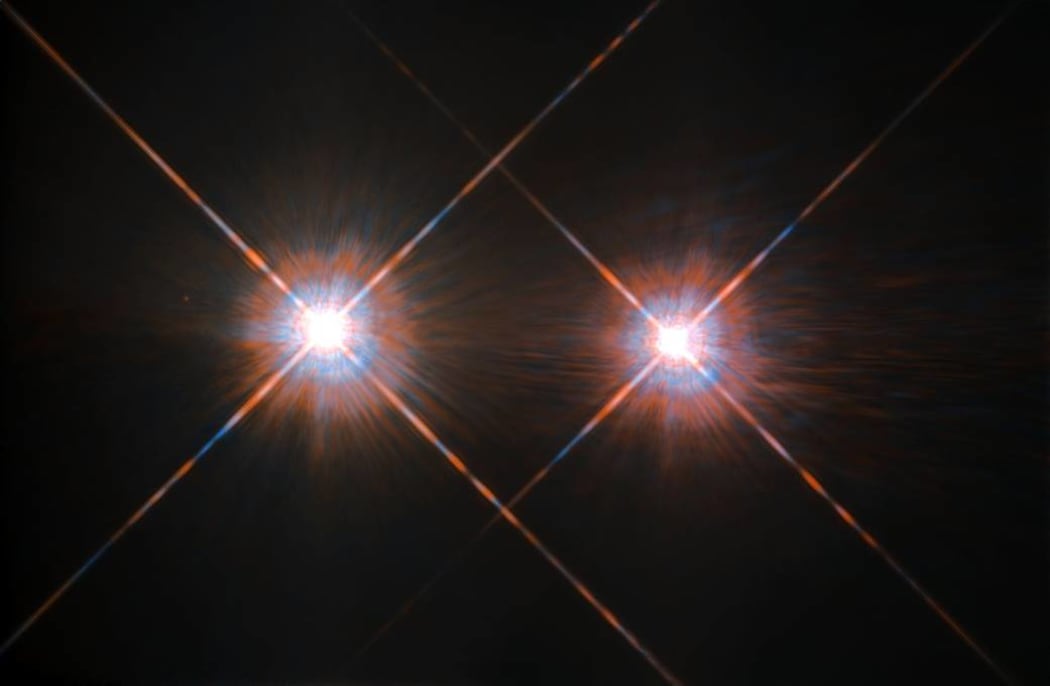It's probably humankind's most persistent obsession - is there anybody out there?

The closest star system to the Earth is the famous Alpha Centauri group, 4.3 light-years away from Earth Photo: NASA
Astronomer Dr Pete Worden is one of the people at the centre of the actual scientific search for extraterrestrial life.
He is the former head of NASA's Ames Research Centre, and is now with the organisation Breakthrough Initiatives - a multidisciplinary science programme aimed at accelerating the search for intelligent life in the universe.
So what is the definition of life?
Even the world's best biologists can't provide a good answer to that question, he says - "We know life if it's like our life."
But the first thing scientists would look for is an atmosphere that wouldn't exist unless life maintained it - in Earth's case oxygen - and a fluid that supports life - on Earth that's water.
If other life exists in our own solar system it's most likely to be on Mars or Saturn, Worden says.
Recently, the Cassini probe found evidence that one of the moons of Saturn - Enceladus - has geysers sending jets of water into space, which could be potential evidence of biology.
Worden's company Breakthrough Initiatives is currently working towards sending probes to our neighbouring solar system Alpha Centauri.
Alpha Centauri is 100,000 times further away from Earth than the planets in our solar system and a probe could take 20 to 25 years to get there, he says.
"We would use a very powerful source of light, a very powerful laser, in a very tiny spacecraft that was less than a gram - and we would push it with this powerful laser to maybe 20 times the speed of light, which is 1000 times faster than we can go today."
The technology already exists to make such a tiny probe, but the super-powerful laser might be 10 years away, says Worden.
It could even be situated in New Zealand, which is one of the reasons he is here.
Warden says he's hopeful that he'll still be around when the probe lands.
"I'm 67 now and my father's 97. I think I might make it, I'm really hoping so."
How we would approach intelligent life, if and when we find it, is a somewhat controversial issue.
"One one side, people say 'Well, it's likely they're advanced, they'll be benign, they can help us'. On the other side, people remind us that whenever one society, especially a more advanced one, meets another on Earth that's not gone well."

